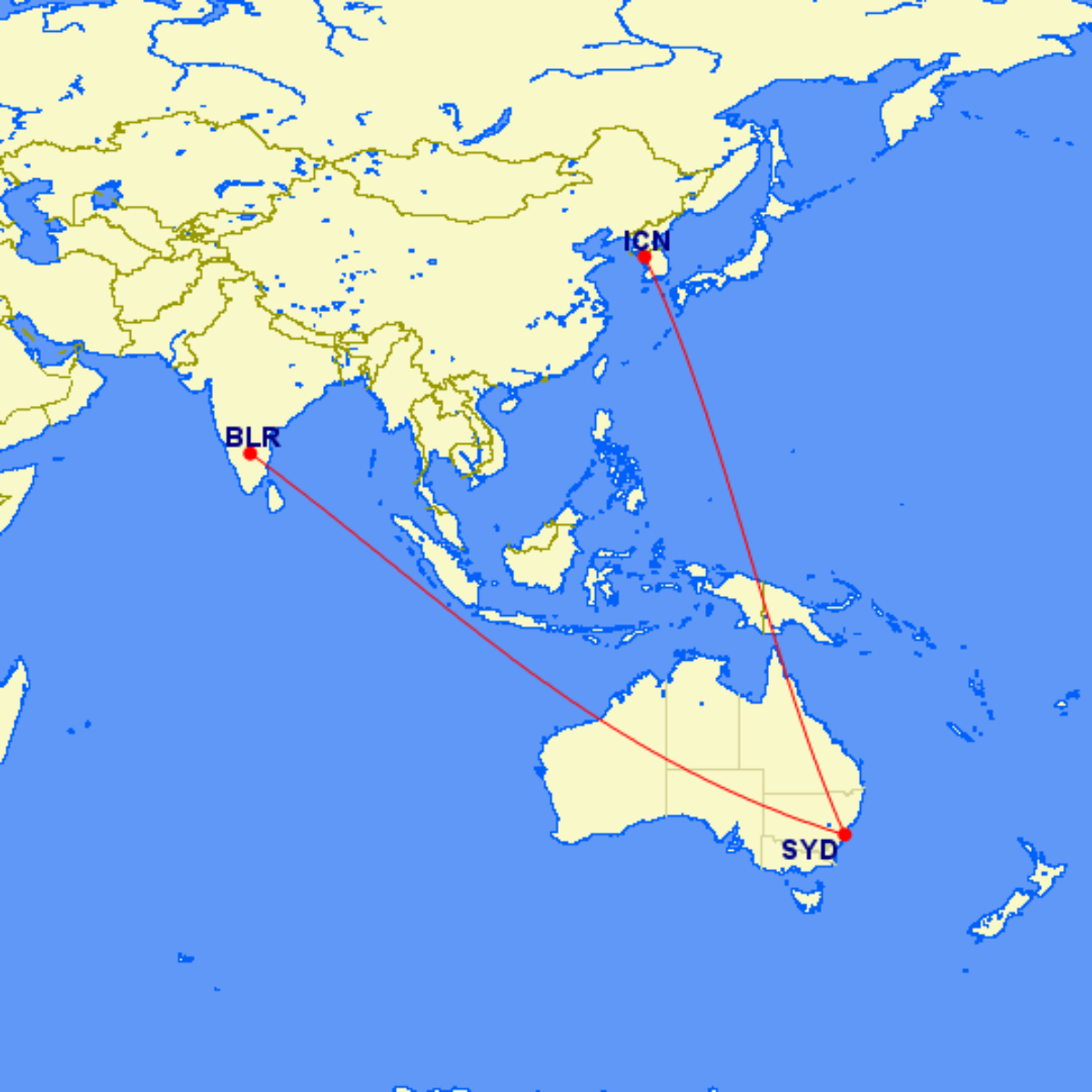Qantas will return to Seoul’s Incheon International Airport later this year after a 14-year absence and start flights to Bengaluru (Bangalore) in southern India in September. It takes to six the number of new international routes Qantas has or is starting since restarting its international flying.
Qantas starting Seoul flights in December
On Friday morning Sydney time, Qantas confirmed it would start flying its A330s to Seoul on December 10. A dive into the Qantas booking engine reveals flights out of Sydney (SYD) every Tuesday, Thursday, Saturday, and Sunday using A330-300 aircraft. That flight, QF87, will push back at 09:35 for the 10 ten and 45 minute run up to Seoul (ICN), landing there at 18:20.
After 90 minutes on the ground, the A330 turns around to operate QF88 back to Sydney. The Airbus leaves ICN at 19:50 for the overnight flight down to Sydney, touching down at 08:15 the following day.
Complementing the Qantas services are new Seoul flights from low-cost subsidiary Jetstar. Commencing November 2, Jetstar’s Boeing 787-8 Dreamliners will cruise between Sydney and Seoul three times a week.
Qantas last regularly flew to Seoul in 2008, but Qantas boss Alan Joyce says South Korea is Australia’s fourth-largest trading partner, and Koreans see Sydney as one of the top tourism destinations.
“With expected strong business, premium leisure, and low-cost travel demand on the route, we see an opportunity for both Qantas and Jetstar to fly on the route,” the Qantas CEO said on Friday.

Qantas Sydney-Bengaluru flights from September
Meanwhile, Qantas is launching another route to India following the start of flights to Delhi (DEL) late last year. This time, Qantas is teaming up with IndiGo and will start flying between Sydney and Bengaluru (BLR) from September 14. QF67, operated by an Airbus A330-200, will fly four times a week with departures out of Sydney at 09:30 on Wednesdays, Fridays, Saturdays, and Sundays. After 11 hours and 55 minutes in the air, the Airbus will land in BLR at 16:55.
QF68 is the return flight, departing Bengaluru on the same days. The jet pushes back at 18:35 and will fly southeast through the night to touch down in Sydney at 10:30 the following day. Qantas notes that 13 million people live in and around Bengaluru and that the growing technology and financial services hub has strong connections with Australia – just not direct flights.
“The signing of the Australia-India free trade agreement is a driver of travel demand as trade and investment links expand between Australia and India’s population of more than one billion people,” says Alan Joyce. “Our new direct flights to Bengaluru, combined with the planned codeshare with IndiGo, have the potential to reshape the way many people travel between Australia and India.”
The NSW Aviation Attraction Fund, which is co-funded by the State Government and Sydney Airport, is supporting all three new routes. Bengaluru’s Kempegowda International Airport has also supported Qantas’ Sydney-Bengaluru flights.

Qantas CEO Alan Joyce. Photo: Getty Images
Qantas starts to reshape its international network
Qantas is using the reboot of its international flying as an opportunity to reshape its network. Since restarting international flying late last year, the airline has or will soon launch six new international routes, including Darwin – Dili, Melbourne – Dallas Fort Worth, Sydney – Bengaluru, Perth – Rome, Sydney – Seoul, and Melbourne -Delhi.
Meanwhile, Qantas noted on Friday that its international capacity (including Jetstar) is expected to reach more than 40% of its pre-COVID capacity in April. The airline adds since Australia’s borders re-opened last November, led by New South Wales, the Qantas Group has carried almost 500,000 passengers on its international services across 27 international routes, with another six routes restarting next week.
“It’s clear that Australia is back on the map for international travelers,” said Mr Joyce. “Demand for our international flights has rebounded since borders reopened, and that’s giving us the confidence to launch these new routes.”
Read Next
About The Author




